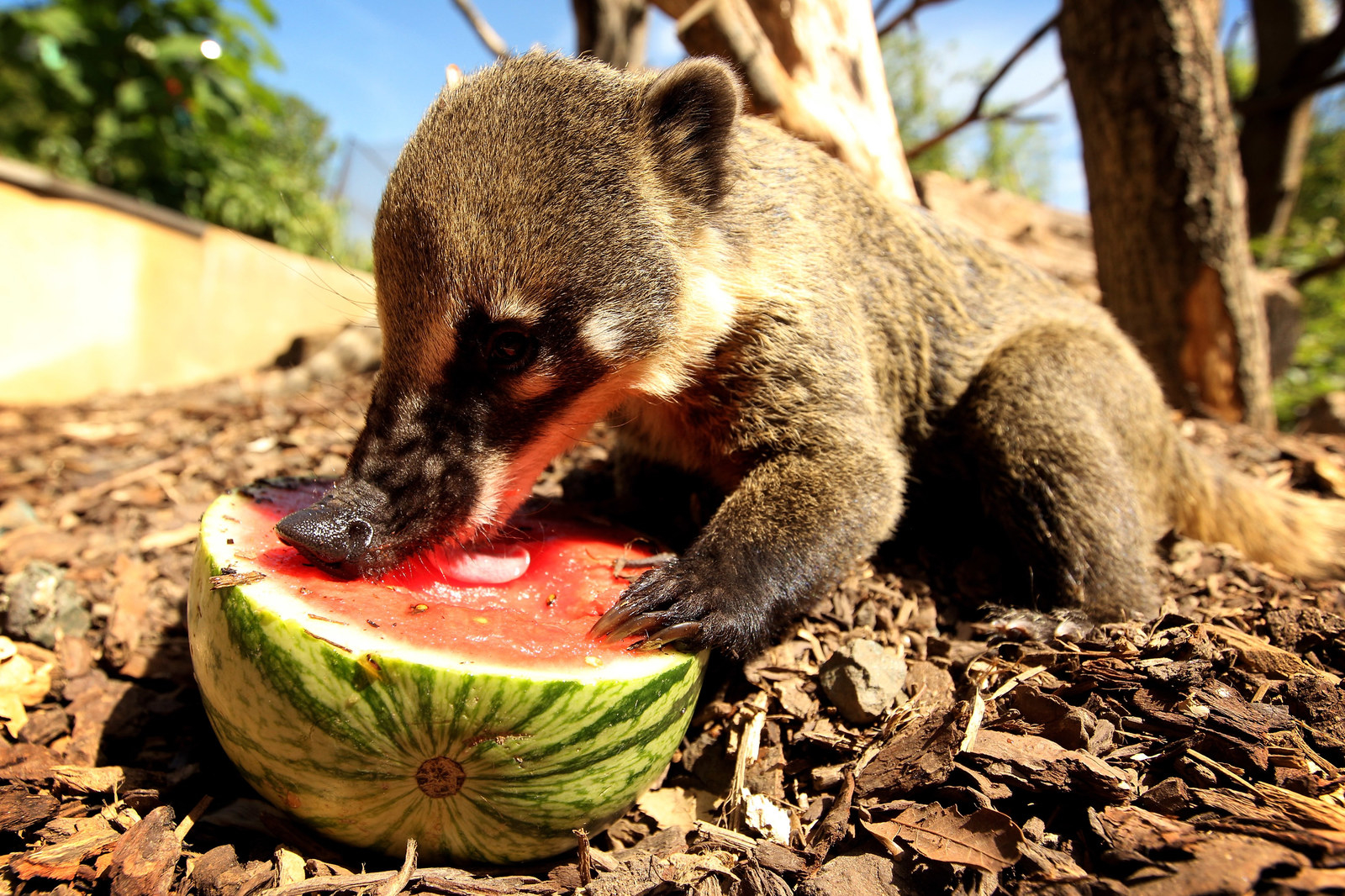
Raccoons, coatis, chipmunks, and other popular creatures could be banned from zoos under European Union rules set to come into force soon.
The animals are on a list of species deemed to be "invasive" and threatening to native populations if they escape captivity and breed.
But zookeepers have said the risk of the creatures breeding in the wild in Britain is very low – and warned that visitors will miss out on seeing some of their favourite animals up close.
The EU regulation on "invasive alien species" became law in 2015 – but the list of affected flora and fauna is not expected to come into force until after Britain's EU referendum on 23 June.
The provisional list, which was approved in December, includes 23 animal and 14 plant species – including the raccoon, Siberian chipmunk, South American coati, grey squirrel, red-eared terrapin, ruddy duck, water hyacinth, and Persian hogweed.
While the UK government is yet to outline its plans as to exactly how wildlife parks and pet owners will be affected, some zoo owners are concerned their animals will have to be removed or even killed.
Chris Moiser, director of Tropiquaria zoo in Somerset, told BuzzFeed News his two raccoons, Rocky and Missy, were very popular with young visitors.

He said the EU rules meant that private owners would get to keep so-called "invasive" species for the rest of the animal's life, as long as they could prove they were not breeding them.
But commercial owners would have to get rid of them after two years – either through conservation projects, medical research, or euthanasia.
"It depends on whether we're classed as a commercial keeper or a private keeper," he said. "But the biology of this is insensible. The chances of one animal escaping from one zoo and meeting another is minuscule."
Moiser also warned that the list of banned species could be added to at any time – meaning that a zoo could build a special enclosure for a new animal only to be told one day that the creature had to go.
Species appear to have been put on the list if an EU member state has had a bad experience with them. In Germany, for example, there are believed to be over a million raccoons running wild – after hundreds escaped from a bombed fur farm during World War II and others were purposely released in the 1930s for hunters.
The situation is very different to the UK, where raccoons are not established in the wild and there have only been a handful of sightings in recent years. Moiser wrote in International Zoo News last year: "The chances of such a population establishing here from the odd zoo or pet escape are phenomenally unlikely.
"We are a small zoo, we love our animals, some of the ex-pets are particularly endearing and friendly. Rocky raccoon is possibly top of that list. How do I explain to my staff and visitors that we have had to kill him because Europe says so, partly because of a bomb that fell in the wrong place in WW2?"

A spokesperson for the Department for Environment, Food, and Rural Affairs confirmed that restrictions on the list of 37 species would come into force "shortly".
They pointed to a previous statement that said: "It is important that action is taken to address the threats posed by invasive non-native species, which risk the survival of our own plants and animals and cost the economy at least £1.8 billion a year."
